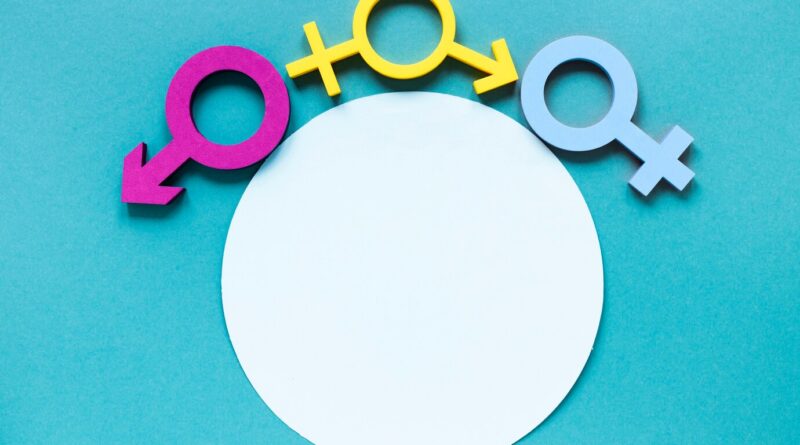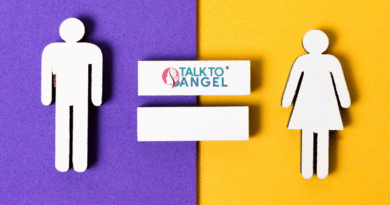Looking Beyond Male and Female: Understanding Gender
In recent years, the concept of gender has evolved significantly. Traditionally, societies have understood gender as a binary construct—male and female—based on biological sex. However, contemporary perspectives on gender suggest that this understanding is limiting and does not fully encompass the spectrum of human experiences. As we continue to challenge societal norms and expectations, it is essential to broaden our understanding of gender and recognize that it goes beyond the simplistic binary framework. This blog will explore the complexities of gender, the psychological implications, and why it’s important to support a more inclusive approach to gender identity.
Understanding Gender: More Than Just Male and Female
Historically, gender has been perceived as directly tied to biological sex, meaning that individuals were classified as either male or female at birth based on their physical characteristics. However, this binary approach has been increasingly challenged in the fields of psychology, sociology, and gender studies. Experts now recognize that gender is a social construct that can be influenced by a variety of factors, including culture, personal identity, and societal expectations.
The distinction between sex and gender is crucial in understanding this evolution. The biological distinctions between males and females, such as chromosomes and reproductive organs, are referred to as sex. On the other hand, gender refers to the roles, behaviors, and identities that society assigns to individuals based on their perceived sex. While sex is often assigned at birth, gender is a more fluid and dynamic concept that can change over time.
Some individuals identify with the gender they were assigned at birth, while others may not. People who feel their gender identity does not align with the sex they were assigned are often referred to as transgender. Additionally, those who do not conform to traditional gender norms may identify as non-binary or genderqueer, acknowledging that gender exists on a spectrum rather than a fixed binary. It’s essential to honor and respect these diverse identities, as doing so fosters inclusivity and psychological well-being.
The Psychological Perspective on Gender
From a psychological standpoint, understanding gender beyond the male/female binary is essential for supporting mental health and well-being. Research has shown that rigid gender roles can contribute to stress, anxiety, and depression. For example, individuals who feel pressure to conform to traditional gender roles may experience cognitive dissonance—a state of discomfort caused by holding conflicting beliefs. For some, this can lead to feelings of inadequacy, low self-esteem, or identity confusion.
Gender identity development is a critical area of focus in psychological counseling. Many individuals struggle with the internal conflict between their gender identity and societal expectations. This struggle can lead to feelings of isolation, shame, or anxiety. It is crucial for mental health professionals to provide a safe, non-judgmental space for individuals to explore and express their gender identity without fear of rejection or discrimination.
Furthermore, those who identify as transgender or non-binary face unique psychological challenges, such as societal stigmatization, discrimination, and a lack of social support. These factors can negatively impact mental health, contributing to higher rates of depression, anxiety, and suicidal thoughts within these communities. This highlights the importance of offering inclusive mental health services that are sensitive to the experiences of individuals with diverse gender identities.
The Importance of Acceptance and Inclusivity
For a person’s mental health to thrive, it is essential to feel accepted for who they are. By embracing a broader understanding of gender, society can foster a more inclusive environment where individuals feel safe to explore and express their true selves. It is crucial that friends, family, and mental health professionals support individuals in their journey, offering empathy and encouragement without judgment.
Therapists and counselors play an integral role in supporting those with diverse gender identities. They provide a crucial space for people to navigate their gender identity in a way that aligns with their true selves. This process of self-discovery can be empowering and affirming, helping individuals achieve greater psychological resilience, self-acceptance, and emotional well-being.
By promoting acceptance of various gender identities, we not only support mental health but also combat the stigmas and prejudices that often arise from ignorance or misinformation. A society that values inclusivity allows for personal growth, fosters healthier relationships, and promotes overall well-being for everyone, regardless of gender identity.
Gender and Mental Health: The Role of Psychologists
As society continues to evolve, psychologists and counselors are becoming increasingly important in helping individuals navigate the complexities of gender. Professionals in the mental health field can support gender-diverse individuals by providing guidance, therapy, and a safe space to explore identity. The following are some prominent psychologists from ThePsychowellness who are deeply committed to supporting gender diversity and mental health:
- Dr. R.K. Suri – A renowned clinical psychologist, Dr. Suri specializes in emotional health and personal growth. His work focuses on offering therapeutic support to individuals struggling with identity issues, including gender identity, by promoting self-discovery and emotional well-being.
- Mr. Utkarsh Yadav – Recognised for his ability in psychotherapy, Mr. Yadav provides counseling services to individuals who need support navigating life’s challenges, including gender-related difficulties. He helps clients understand their identity and build self-confidence.
- Mrs. Kala Sengupta – Mrs. Sengupta’s practice focuses on helping individuals understand their emotional states, manage stress, and overcome personal hurdles, including those related to gender. Her compassionate approach offers support for anyone exploring gender identity or facing societal pressures.
- Ms. Sakshi Dhankhar – With a strong background in counselling psychology, Ms. Dhankhar works with clients who experience difficulties with gender roles and societal expectations. She encourages clients to express themselves freely and provides tools to cope with stress and anxiety.
- Ms. Mansi – As a counselor who emphasizes self-empowerment, Ms. Mansi helps individuals navigate gender-related issues, supporting clients as they explore their identities and understand the impact of societal expectations on their mental health.
- Ms. Drishti – Ms. Drishti specializes in gender inclusivity and is deeply passionate about providing safe spaces for individuals to explore their identities. Her work involves providing guidance to clients who may feel marginalized due to their gender identity.
- Ms. Riya Rathi – Ms. Rathi’s focus is on providing holistic therapy to individuals struggling with their gender identity. She helps clients address any emotional or psychological challenges they face and provides guidance on how to navigate complex social dynamics.
- Ms. Sristhi – Known for her compassionate approach, Ms. Sristhi offers a non-judgmental environment for clients to explore their gender identity and work through any associated challenges. She specializes in building emotional resilience.
- Ms. Sangeeta Pal – Having worked in psychotherapy for a long time, Ms. Pal works with individuals from all walks of life, including those exploring their gender identity. She helps clients develop healthier coping mechanisms and self-acceptance.
Conclusion
Gender is a deeply personal and complex aspect of an individual’s identity that goes beyond the simple categories of male and female. As we continue to challenge traditional gender norms and embrace a more inclusive understanding of gender, it is crucial to provide support to those who may struggle with their gender identity. Psychologists and counselors play an essential role in this process, helping individuals navigate their unique experiences and promoting mental health. By fostering acceptance and inclusivity, we can build a society where everyone, regardless of their gender identity, feels empowered to live authentically and thrive.
References:
- Aron, E. N. (2000). The Highly Sensitive Person: How to Thrive When the World Overwhelms You. Broadway Books.
- Diamond, M. (2002). “The Development of Gender Identity in Children.” Developmental Psychology, 38(5), 1233-1245.




